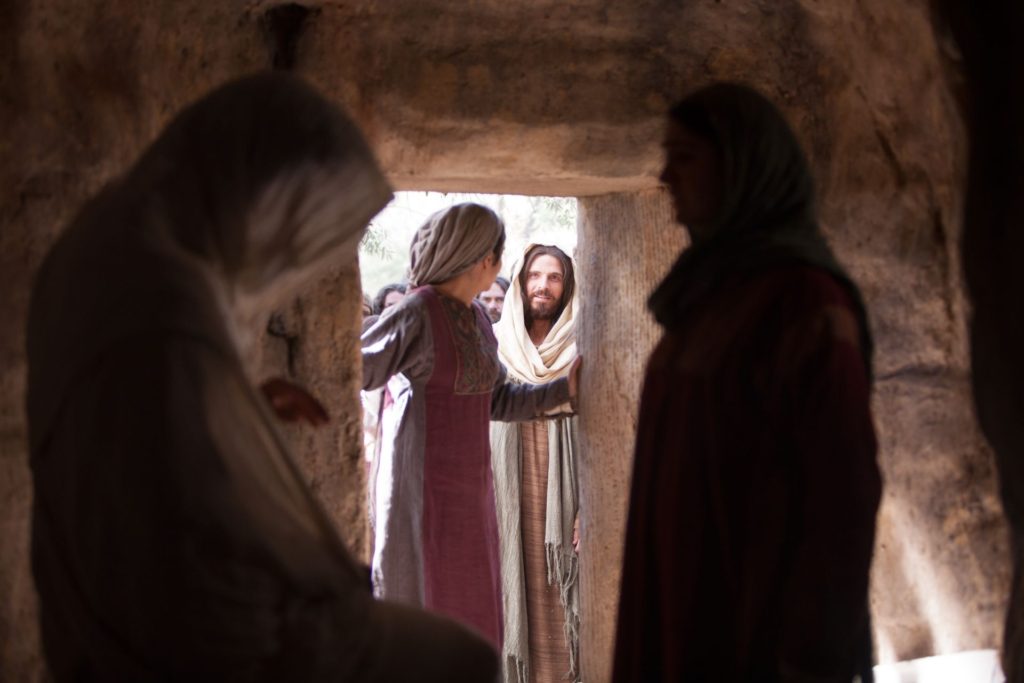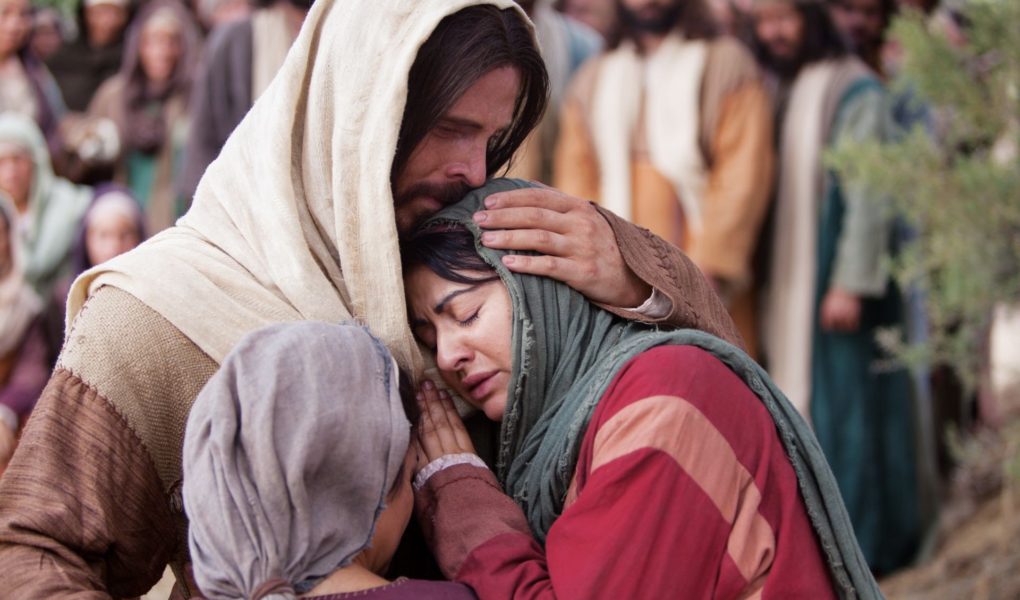Just before the last week of His mortal life, Jesus was sent word that His friend, Lazarus, was desperately sick. Jesus, knowing what was to come, delayed His return to Judea, and Lazarus died before He came. When Jesus came to the home of Lazarus, his sisters were grief stricken and both said essentially the same thing to Him: “Lord, if thou hadst been here, my brother had not died” (John 11:21, 32). Their faith assured them that if the Savior had been near, He could have healed Lazarus and made him whole again. Martha has a conversation with Jesus in which Jesus reminds her of the resurrection, and Martha agrees that her brother will rise again in the last day, but seems to be silently pleading for comfort of a more present nature. In the great sorrow of their loss, the sisters assume that the Savior came too late for their most pressing need, too late to provide the miracle they sought or to prevent the death of their brother.
The Savior’s responses to these faithful sisters is characteristic of Him in beautiful ways. Even knowing the miracle to come, Jesus weeps with them and for them in their sorrow. It is such a tender occasion to picture-the Savior mourning with them, despite the joy that is shortly to come: “Jesus wept” (John 11:35). In that one moment He shows a wealth of compassion for all of us in our very mortal emotions. He truly feels what we feel and knows the pain and sorrow this world brings. He doesn’t discount those real, wrenching moments, but enters into them with us-even with His superior knowledge and vision of what good is to come.
Jesus presses His point about resurrection further with Martha, to help her understand what that really means. He declares, “I am the resurrection and the life…” “He that believeth in me, though he were dead, yet shall he live: and whosoever liveth and believeth in me shall never die…” (John 11:25-26, emphasis added). “Martha,” He seems to be emphasizing, “I am here and I am life. That which seems dead or dark or despairing will live-not just in some distant future, but now. In me, all things have light and life. Even when there are endings on earth, there is not an end to living in me.” (And still, He weeps with them!) In a few days, He will use His power over His own death, and in so doing, break the bonds of death for all mankind. But right now, Martha is left with the assurance that He is the Son of God-that in Him all is made right and whole (see John 11:27).
Then Jesus demonstrates to them that He is not too late; that there are not limits on His power to heal and bless and to breathe life into those things which are dead. He asks for the stone to be removed from the tomb and Martha is a bit aghast-“by this time he stinketh: for he hath been dead four days” (John 11:39). Not only is Lazarus gone, but all hope for any healing or relief is long gone-four days dead gone. But with power and peace, Jesus calls Lazarus forth, and he comes!
He can call us, too, out of our darknesses, out of our bonds, out of our ‘death’ as it were.
It is not too late for Him, and so, it is not too late for us.
There are no limits on His power to bless and heal us.
With His power over death, we see His ability and His desire to make all broken things whole; to make everything wrong, right again.
Overwhelming joy replaces sorrow.
Here is hope.



